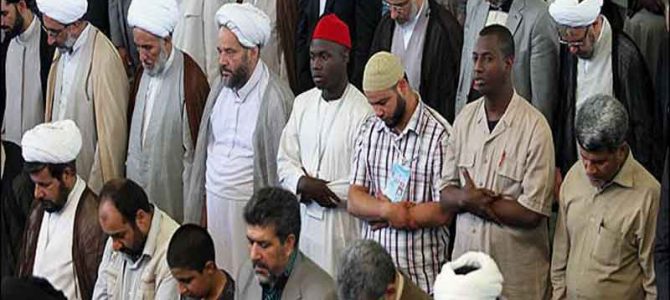Question 650: Assalam o alaikum. As in many countries have out door laundry shops where people come and wash their dirty clothes, which can have stains of najis blood or other things. So can we use those washing machines for our laundry? Actually, I want to know the Rules on using washing machines when you have doubts.
Answer 650: Generally, a well-known religious law says: “Everything is ritually pure for you unless you come to know that it is ritually impure.” This law declares everything to be pure unless one becomes sure a particular item has become impure. And as long as you are not sure that it has become ritually impure (najis), it is to be considered pure and you can apply all the rules of purity to it without any hesitation or doubt.[1] Read More










